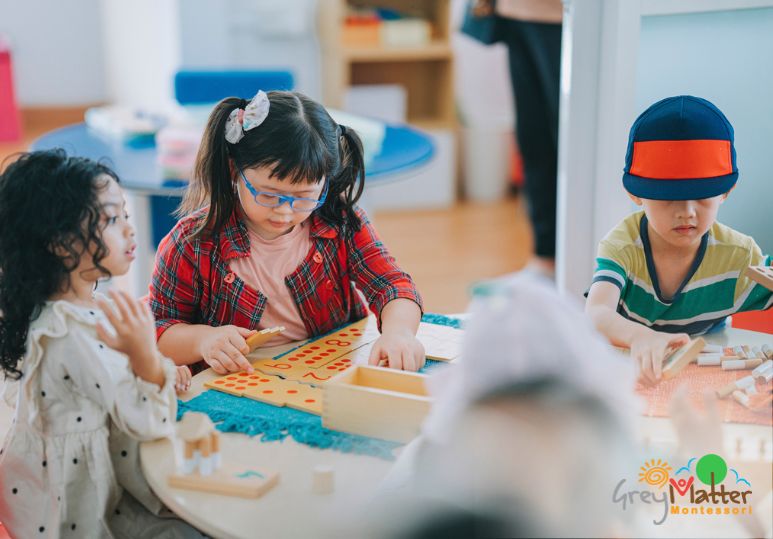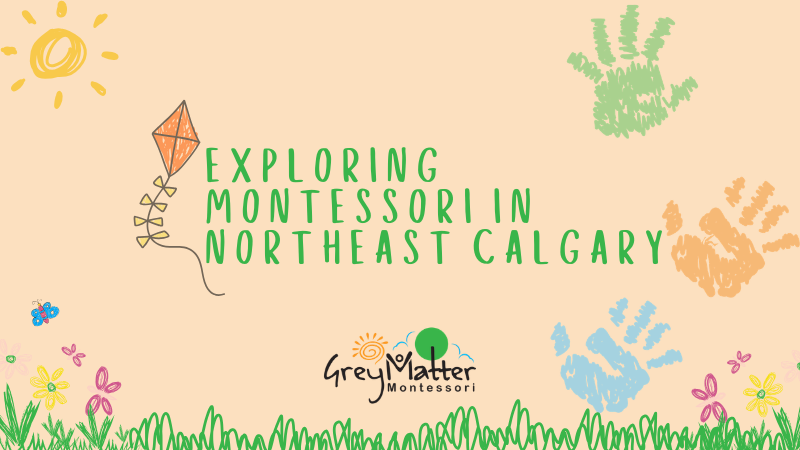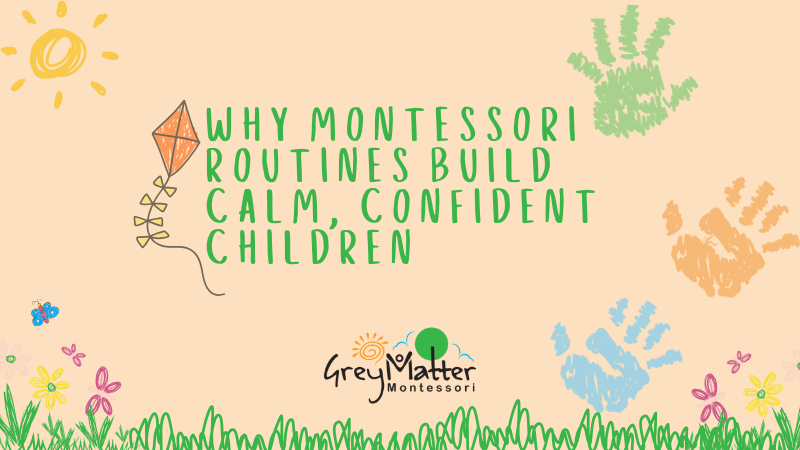In the realm of education, where the foundation of a child's learning journey is laid, Montessori stands as a beacon of innovative and effective teaching methods. At the heart of this approach lies the concept of "Catalysts of Curiosity" – a philosophy that embraces the idea that learning is most effective when it's a joyful and self-directed exploration. In the enchanting world of Montessori's playful learning stations, children are not just pupils; they are discoverers, creators, and, most importantly, curious minds ready to embrace the wonders of education.
Embracing the Unconventional ABCs
Montessori's unique approach challenges traditional educational norms, steering away from rigid structures to create an environment that nurtures a child's innate curiosity. Playful learning stations are at the core of this philosophy, offering a diverse array of materials and activities that engage children's senses, allowing them to explore, discover, and learn at their own pace.
At these stations, the alphabet is not confined to textbooks but painted on wooden blocks, traced with small fingers in trays of sand, and even danced to in creative movement sessions. The unconventionality of Montessori's ABCs sparks a love for language that extends beyond rote memorization, creating a foundation for a lifelong appreciation of communication and expression.
Sculpting Minds: The Power of Hands-On Learning
One of Montessori's most celebrated aspects is its emphasis on hands-on learning. Playful learning stations become vibrant workshops where children mold their understanding of the world through touch, smell, and sight. From counting beads to arranging geometric shapes, every tactile interaction is a step in sculpting young minds.
In these stations, the simple act of pouring water into various-sized containers becomes a lesson in volume and measurement. The clinking of utensils while setting a table transforms into an exploration of sound and coordination. Montessori's hands-on learning stations create an interactive symphony of discovery, awakening a child's natural desire to understand and interact with their surroundings.
Creating Independent Thinkers: Montessori's Gift
Independence is a gift Montessori bestows upon its young learners. Playful learning stations are carefully designed to allow children to explore and make choices independently. From selecting activities that capture their interest to learning how to tidy up after themselves, these stations instill a sense of responsibility and self-sufficiency.
As children move freely between stations, they develop decision-making skills and a sense of autonomy. This freedom nurtures a love for learning that is not driven by external expectations but emerges from a child's internal motivation to explore and understand the world around them. Montessori's playful learning stations become the playgrounds of independence, where young minds take their first steps toward becoming confident thinkers.
The Social Alchemy of Montessori
Beyond academics, Montessori's playful learning stations are social hubs where children engage with peers, fostering a community of collaborative learning. Shared activities, group projects, and cooperative play lay the groundwork for essential social skills. As children navigate these social landscapes, they learn the art of communication, negotiation, and empathy – skills that are not just essential in childhood but form the cornerstone of successful adulthood.
In Montessori's world, where each child is seen as a unique individual, the learning stations become the canvas where social skills are not just taught but lived. The diversity of activities encourages collaboration and mutual support, creating an environment where every child thrives as a valued member of the community.
As we unravel the enchanting world of Montessori's playful learning stations, the invitation is clear – to embark on an educational adventure that transcends the conventional and sparks a love for learning. Parents, envision a place where your child is not a passive learner but an active participant in their own education, where curiosity is not suppressed but celebrated.
Enrolling your child in a Montessori environment is not just a choice; it's an investment in a future where education is a joyful journey, not a chore. The benefits are immeasurable – independent thinkers, confident learners, and socially adept individuals. Montessori's playful learning stations are not just catalysts of curiosity; they are the portals to a world where every child is encouraged to explore, create, and, most importantly, be themselves. In the realm of Montessori, education is not just about knowledge; it's about nurturing the flame of curiosity that burns within every child, creating a foundation for a lifetime of learning and discovery.
Written on behalf of Grey Matter Montessori.
FAQs:
Q: Are there standardized tests in Montessori education?
A: Montessori education focuses on the process of learning rather than standardized testing. Assessment is continuous and individualized, ensuring a comprehensive understanding of each child's progress.
Q: What evidence supports the effectiveness of Montessori education?
A: Research consistently shows that Montessori-educated children exhibit strong academic performance, social skills, and a love for learning. Longitudinal studies demonstrate lasting positive effects into adulthood.
Q: Are there long-term studies on the outcomes of Montessori education into adulthood?
A: Longitudinal research indicates that Montessori-educated individuals often show positive outcomes in areas such as higher education attainment, career success, and overall well-being into adulthood.






